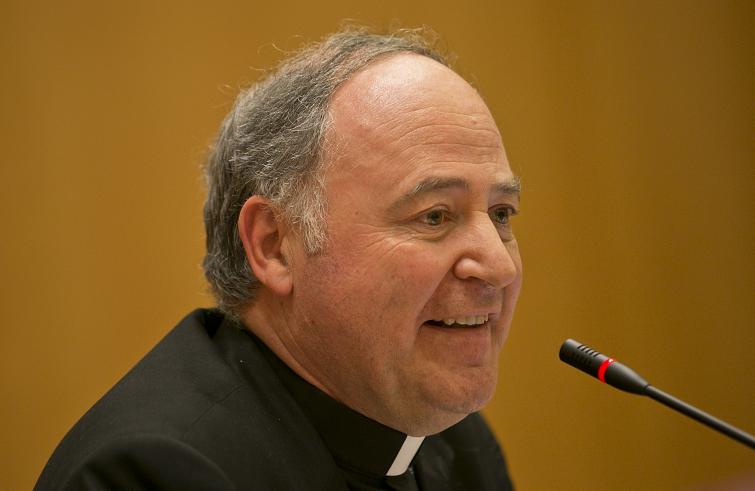
According to the World Health Assembly (WHO decision-making body), more than 40 million people currently require palliative care every year. Figures are set to continue to grow as a result of the persistence of chronic and infectious diseases and ageing populations. The Pontifical Academy for Life (PAV) organized the Vatican International Conference “Palliative Care: Everywhere & by Everyone. Palliative care in every region. Palliative Care in every religion or belief” (February 28/March 1st) to provide a snapshot of the state of the art through an exchange of experiences in different countries, cultures and religious traditions and to raise awareness on the care of terminal patients, their quality of life and of their family members. The two-day conference ended with the presentation on a “White Paper for global palliative care advocacy”, with the participation of 400 experts from 38 world countries. Interview with Msgr. Renzo Pegoraro PAV chancellor.

What is meant by palliative care and what is the Church’s position in this respect?
These treatments ensure the care of patients as whole persons, especially in the terminal stages of life, offering answers to their physical, psychological, relational and spiritual needs, thereby ensuring the best possible quality of life. It provides relief from suffering and accompanies terminal patients towards dignified and possibly serene death,
The Church considers palliative care to be good, respectful and ethical
in providing support to the human person as a whole and prevent drifts – towards euthanasia and towards therapeutic obstinacy: two inadmissible medical procedures.
A controversial aspect on which there still is great confusion, especially after the recent news reports, is deep palliative sedation …
In this respect Church magisterium expresses a coherent position and consolidated in time. Pope Pius XII, in the 1950s had already highlighted the importance of administering analgesics for the treatment of unbearable pain that could not be not otherwise be alleviated, even if these could indirectly shorten the patient’s life. Since then, thanks to medical progress, this side effect is very rare. It is understood that this type of sedation should be offered only in extreme cases to relieve so-called “refractory symptoms” (otherwise unbearable pain) of a patient in the last stages of life, in accordance with appropriate procedures and obtain, when possible, the consent of the patient and the involvement of family members to ensure that it is a shared decision. I wish to point out that
deep sedation is a procedure inherent to palliative care that has nothing to do with euthanasia and assisted suicide.
The past two days were marked by overarching debates involving different cultures and faiths …
These debates and dialogues furthered mutual understanding and the sharing of global developments, the approaches of different realities and related responses. Indeed, difficulties linger on along with problems connected with religious traditions, economic and social conditions and the different cultural environments. Moreover, there remains deep disparity between rich countries and developing countries where appropriate medication and treatments, staff training, facilities and services are scarce and where sometimes situations are faced with a certain degree of fatalism. However, despite the awareness of these differences and these limits, a strong
“universality” has emerged, coupled by the willingness to work together so as to promote the development of palliative care and foster its dissemination and organization on a global scale, both at home and in hospices.
What role could be played by religions?
In the light of their capacity to “penetrate” the various cultural contexts they can further and accompany this process by involving the families and foster the creation of reception structures.
What is the goal of the White Paper presented at the end of the Conference? It’s the operative summary of a broader, comprehensive text drawn up by the selected group of experts of PaL-Life Project launched by the Academy on the global state of palliative care with
13 extensive recommendations addressed to an equal number of stakeholders involved in this sector: policymakers, academia, hospitals and healthcare centres, healthcare workers, pharmaceutical authorities, international organizations, churches and religious institutions, professional associations and societies for human rights, patients’ groups and mass media.
They can all play an important role in the promotion of a culture of proximity and accompaniment of fragile life. This culture implies new mentalities, new approaches and new organization models. The Paper was handed out to Conference participants. We intend to promote its dissemination with the involvement of all interested stakeholders.
Palliative care was introduced in Italy with Act 38 of March 15 2010. What is your opinion?
It’s certainly a good law, but in our Country a lot still needs to be done to disseminate these practices, also in organization of services. There still are too many imbalances at territorial level.










